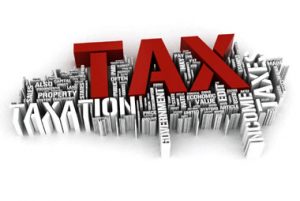 April 15th has to be one of the least liked days of the year. Not that paying taxes is a bad thing, but paying too much in taxes is. If you have a nagging feeling that somehow you’re paying unnecessary taxes, consider five ways that indexing would cut the tax tab.
April 15th has to be one of the least liked days of the year. Not that paying taxes is a bad thing, but paying too much in taxes is. If you have a nagging feeling that somehow you’re paying unnecessary taxes, consider five ways that indexing would cut the tax tab.
- 1. Buy and hold – The prime source of taxes on investments comes from selling securities and producing capital gains. Indexing is an inherent buy and hold strategy, seeking to reap the long-term returns of entire asset classes, not jumping in and out of specific stocks for short-term (and taxable) gains.
- No gains taxes if you don’t sell – Warren Buffett loves the S&P 500 (see America’s Greatest Stockpicker says “Index”) for its diversification, and the ability to own it for just a few basis points in management fees. We also love it because it doesn’t generate taxable gains distributions. SPY – the S&P 500 ETF – debuted in 1993 and has compounded annually at 8.68% pre-tax and 8.37% after tax since then. Zero capital gains distributions so far, and no reason to expect that to change in the future. The only tax has been on dividends.
- No late year surprises – If you’ve owned mutual, hedge or private equity funds, you’re probably familiar with the end of year announcement of taxable gains distributions. An actively managed fund may sell securities all year long trying to beat the market or increase value, and rack up a big tax liability along the way. You pay the tax even if you owned the fund for part of the year. With ETFs, however, you control your basis and control your tax payments. (Mutual funds and comingled funds are so 20th century!)
- Turnover without taxation – Less than half of the companies in the S&P 500 today were in the index in 1993; winners grow and losers disappear. Yet SPY, managed by State Street, has made all the buy and sell trades to track the index without having to make taxable distributions.
- Make lemonade – Gold was a big lemon in 2013, with its biggest decline in decades, down 33 percent. What did we do? When we rebalanced portfolios, we realized losses in gold to offset capital gains in stock ETFs, which had a banner year. Offsetting the gains eliminates the tax. Any alert advisor would have done the same thing for you.
It’s what you keep, not what you make
Your after-tax performance – what you keep – is the only number that really matters. I encourage all investors to demand after-tax reporting. If your advisor doesn’t provide it, we can take a look at your portfolio and identify any taxes you could have avoided.
Want to know more?
Give us a call at 617-217-2772 – we’d love to hear what’s on your mind
Weekly Articles by Osbon Capital Management:
"*" indicates required fields
